LETTER 263A
您可以在百度里搜索“The Works of Charles and Mary Lamb — Volume 5 艾草文学(www.321553.xyz)”查找最新章节!
LETTER 263A
CHARLES LAMB TO S. T. COLERIDGE
[No date. ? Autumn, 1820.]
Dear C.,—Why will you make your visits, which should give pleasure, matter of regret to your friends? You never come but you take away some folio that is part of my existence. With a great deal of difficulty I was made to comprehend the extent of my loss. My maid Becky brought me a dirty bit of paper, which contained her description of some book which Mr. Coleridge had taken away. It was "Luster's Tables," which, for some time, I could not make out. "What! has he carried away any of the tables, Becky?" "No, it wasn't any tables, but it was a book that he called Luster's Tables." I was obliged to search personally among my shelves, and a huge fissure suddenly disclosed to me the true nature of the damage I had sustained. That book, C., you should not have taken away, for it is not mine; it is the property of a friend, who does not know its value, nor indeed have I been very sedulous in explaining to him the estimate of it; but was rather contented in giving a sort of corroboration to a hint that he let fall, as to its being suspected to be not genuine, so that in all probability it would have fallen to me as a deodand; not but I am as sure it is Luther's as I am sure that Jack Bunyan wrote the "Pilgrim's Progress;" but it was not for me to pronounce upon the validity of testimony that had been disputed by learneder clerks than I. So I quietly let it occupy the place it had usurped upon my shelves, and should never have thought of issuing an ejectment against it; for why should I be so bigoted as to allow rites of hospitality to none but my own books, children, &c.?—a species of egotism I abhor from my heart. No; let 'em all snug together, Hebrews and Proselytes of the gate; no selfish partiality of mine shall make distinction between them; I charge no warehouse-room for my friends' commodities; they are welcome to come and stay as long as they like, without paying rent. I have several such strangers that I treat with more than Arabian courtesy; there's a copy of More's fine poem, which is none of mine; but I cherish it as my own; I am none of those churlish landlords that advertise the goods to be taken away in ten days' time, or then to be sold to pay expenses. So you see I had no right to lend you that book; I may lend you my own books, because it is at my own hazard, but it is not honest to hazard a friend's property; I always make that distinction. I hope you will bring it with you, or send it by Hartley; or he can bring that, and you the "Polemical Discourses," and come and eat some atoning mutton with us one of these days shortly. We are engaged two or three Sundays deep, but always dine at home on week-days at half-past four. So come all four—men and books I mean—my third shelf (northern compartment) from the top has two devilish gaps, where you have knocked out its two eye-teeth.
Your wronged friend,
C. LAMB.
[This letter is usually dated 1824, but I think it was written earlier. For one reason, Hartley Coleridge was not in London in that year, and for another, there are several phrases in the Elia essay "Two Races of Men" (printed in the London Magazine, December, 1820) that are so similar to some in this letter that I imagine the letter to have suggested the subject of the essay, the composition of which immediately followed it. Thus, in the essay we read:—
"That foul gap in the bottom shelf facing you, like a great eye-tooth knocked out—(you are now with me in my little back study in Bloomsbury, reader!)—with the huge Switzer-like tomes on each side (like the Guildhall giants, in their reformed posture, guardant of nothing) once held the tallest of my folios, Opera Bonaventurae, choice and massy divinity, to which its two supporters (school divinity also, but of a lesser calibre,—Bellarmine, and Holy Thomas), showed but as dwarfs,— itself an Ascapart!—that Comberbatch abstracted upon the faith of a theory he holds, which is more easy, I confess, for me to surfer by than to refute, namely, that 'the title to property in a book (my Bonaventure, for instance) is in exact ratio to the claimant's powers of understanding and appreciating the same.' Should he go on acting upon this theory, which of our shelves is safe?"
"Luster's Tables"—Luther's Table Talk.
"More's fine poem." The Psychozoia Platonica, 1642, of Henry More, the Platonist. Lamb seems to have returned the book, for it was not among his books that he left. Luther's Table Talk seems also to have been given up.] The Works of Charles and Mary Lamb — Volume 5




